Anpassungsfähigkeit und Resilienz des Finanzsystems
Diese Forschungsgruppe untersucht kritische Aspekte der Anpassungsfähigkeit und Widerstandsfähigkeit von Finanzsystemen. Sie analysiert die Auswirkungen von Naturkatastrophen auf Finanzsysteme, die Auswirkungen politischer Präferenzen für die grüne Transformation und die Bedeutung von Kultur in den Volkswirtschaften.
Forschungscluster
Finanzresilienz und RegulierungIhr Kontakt

- Abteilung Finanzmärkte
PROJEKTE
08.2022 ‐ 07.2025
OVERHANG: Schuldenüberhang und grüne Investitionen – die Rolle von Banken für den klimafreundlichen Umgang mit emissionsintensiven Anlagenvermögen
Bundesministerium für Bildung und Forschung (BMBF)
Ziel von OVERHANG ist es, die Rolle von Banken für den klimafreundlichen Umgang mit emissionsintensiven Anlagevermögen zu untersuchen. Hierdurch sollen politikrelevante Erkenntnisse zu Finanzregulierung, staatlich kontrollierter Kreditvergabe und Finanzstabilität identifiziert sowie eine Sensibilisierung der verschuldeten Akteurinnen und Akteuren erreicht werden.
Das Projekt wird vom Bundesministerium für Bildung und Forschung (BMBF) finanziert.
01.2015 ‐ 12.2019
Interactions between Bank-specific Risk and Macroeconomic Performance
Deutsche Forschungsgemeinschaft (DFG)
07.2016 ‐ 12.2018
Relationship Lenders and Unorthodox Monetary Policy: Investment, Employment, and Resource Reallocation Effects
Leibniz-Gemeinschaft
We combine a number of unique and proprietary data sources to measure the impact of relationship lenders and unconventional monetary policy during and after the European sovereign debt crisis on the real economy. Establishing systematic links between different research data centers (Forschungsdatenzentren, FDZ) and central banks with detailed micro-level information on both financial and real activity is the stand-alone proposition of our proposal. The main objective is to permit the identification of causal effects, or their absence, regarding which policies were conducive to mitigate financial shocks and stimulate real economic activities, such as employment, investment, or the closure of plants.
Referierte Publikationen

Firm Social Networks, Trust, and Security Issuances
in: European Journal of Finance, Nr. 4, 2022
Abstract
We observe that public firms are more likely to issue seasoned stocks rather than bonds when theirs boards are more socially-connected. These connected issuers experience better announcement-period stock returns and attract more institutional investors. This social-connection effect is stronger for firms with severe information asymmetry, higher risk of being undersubscribed, and more visible to investors. Our conjecture is this social-network effect is driven by trust in issuing firms. Given stocks are more sensitive to trust, these trusted firms are more likely to issue stocks than bonds. Trustworthiness plays an important role in firms’ security issuances in capital markets.

Social Capital, Trusting, and Trustworthiness: Evidence from Peer-to-Peer Lending
in: Journal of Financial and Quantitative Analysis, Nr. 4, 2022
Abstract
How does social capital affect trust? Evidence from a Chinese peer-to-peer lending platform shows regional social capital affects the trustee’s trustworthiness and the trustor’s trust propensity. Ceteris paribus, borrowers from higher social capital regions receive larger bid from individual lenders, have higher funding success, larger loan size, and lower default rates, especially for low-quality borrowers. Lenders from higher social capital regions take higher risks and have higher default rates, especially for inexperienced lenders. Cross-regional transactions are most (least) likely to be realized between parties from high (low) social capital regions.

Political Ties and Raising Capital in Global Markets: Evidence from Yankee Bonds
in: Journal of Corporate Finance, June 2022
Abstract
This paper examines whether state-to-state political ties help firms obtain better terms when raising funds in global capital markets. Focusing on the Yankee bonds market, we find that issuances by firms from countries with close political ties with the US feature lower yield spreads, higher issuance amounts, and longer maturities. Such an association is more pronounced for firms located in low income and highly indebted countries as well as firms in government-related industries, first-time issuers, and relatively smaller firms. Our study provides evidence supporting the notion that country-level political relationship is an important factor when raising capital in international markets.

Commitment or Constraint? The Effect of Loan Covenants on Merger and Acquisition Activity
in: Finance Research Letters, June 2022
Abstract
We investigate how loan covenants associated with potential target firms affect takeover deals. We propose two possible channels. Under a discipline channel, the target firm becomes an attractive candidate for takeovers and merger deals are facilitated. Under a constraint channel, covenants hinder merger activity. We find support for the latter channel. Takeover likelihood is lower, deal failures are more common, the likelihood of price renegotiation is higher, and acquisition premium is lower when the target is bound by covenants. Covenant tightness exacerbates this effect.
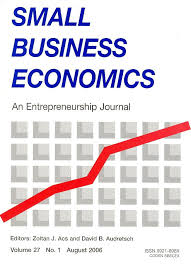
Bank Failures, Local Business Dynamics, and Government Policy
in: Small Business Economics, Nr. 4, 2022
Abstract
Using MSA-level data over 1994–2014, we study the effect of bank failures on local business dynamics, in the form of net business formation and net job creation. We find that at least one bank failure in the metropolitan statistical area (MSA) with the mean population prevents approximately 475 net businesses from forming in that area, compared with MSAs that experience no bank failures, ceteris paribus. The equivalent effect on net job creation is 16,433 net job losses. Our results are even stronger for small businesses, which are usually more dependent on bank-firm relationships. These effects point to significant welfare losses stemming from bank failures, highlighting an important role for government intervention. We show that the Troubled Asset Relief Program (TARP) is effective in reducing the negative effects of bank failures on local business dynamics. This positive effect of TARP is quite uniform across small and large firms.
Arbeitspapiere

Ecological Preferences and the Carbon Intensity of Corporate Investment
in: IWH Discussion Papers, Nr. 2, 2025
Abstract
<p>Lowering carbon intensity in manufacturing is necessary to transform current production technologies. We test if local agents’ preferences, revealed by vote shares for the Green party during local elections in Germany, relate to the carbon intensity of investments in production technologies. Our sample comprises all investment choices made by manufacturing establishments from 2005-2017. Our results suggest that ecological preferences correlate with significantly fewer carbon-intensive investment projects while investments stimulating growth and reducing carbon emissions increase by 14 percentage points. Both results are more distinct in federal states where the Green Party enjoys political power and local ecological preferences are high.</p>
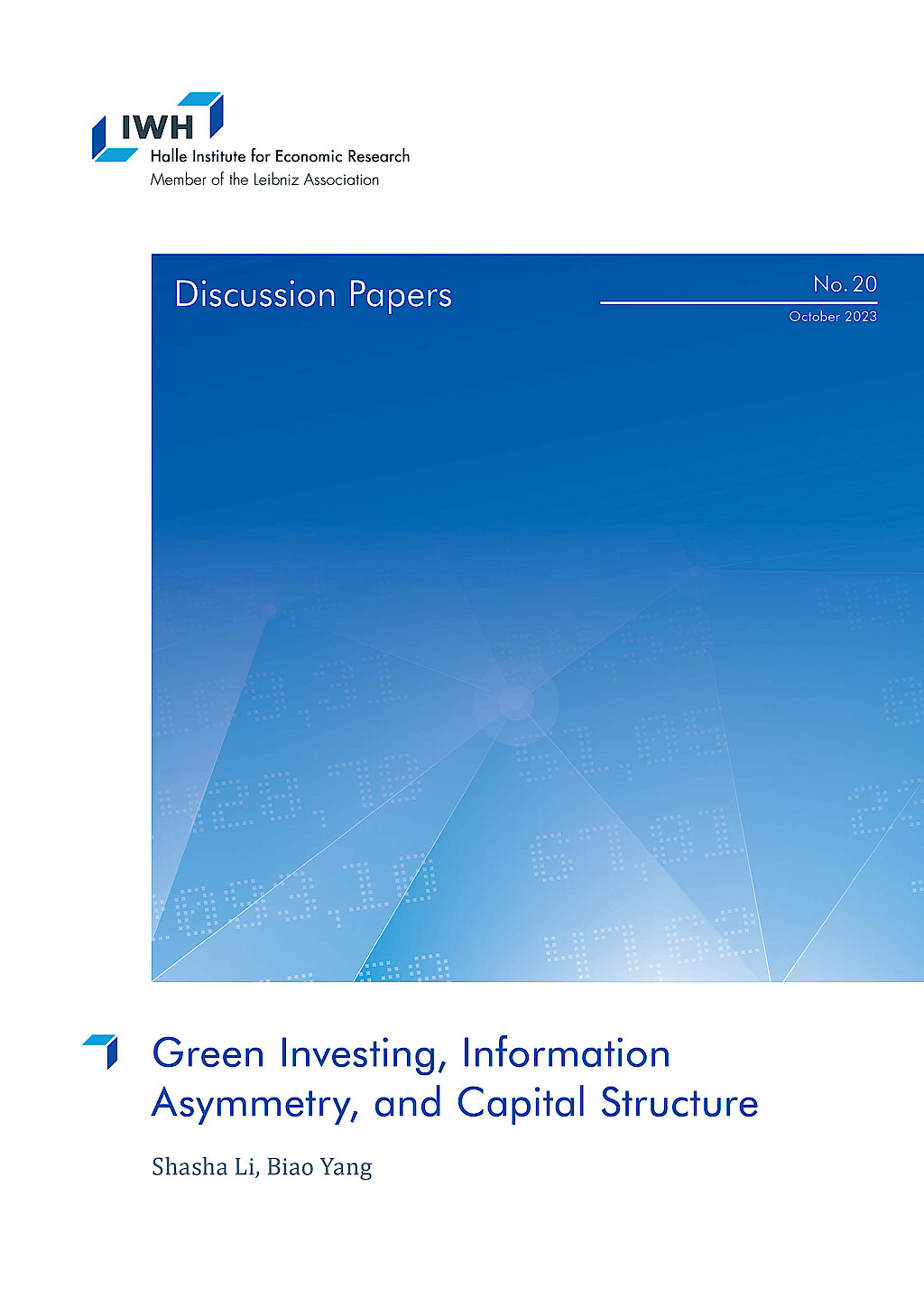
Green Investing, Information Asymmetry, and Capital Structure
in: IWH Discussion Papers, Nr. 20, 2023
Abstract
We investigate how optimal attention allocation of green-motivated investors changes information asymmetry in financial markets and thus affects firms‘ financing costs. To guide our empirical analysis, we propose a model where investors with heterogeneous green preferences endogenously allocate limited attention to learn market-level or firm-specific fundamental shocks. We find that a higher fraction of green investors in the market leads to higher aggregate attention to green firms. This reduces the information asymmetry of green firms, leading to higher price informativeness and lower leverage. Moreover, the information asymmetry of brown firms and the market increases with the share of green investors. Therefore, greater green attention is associated with less market efficiency. We provide empirical evidence to support our model predictions using U.S. data. Our paper shows how the growing demand for sustainable investing shifts investors‘ attention and benefits eco-friendly firms.
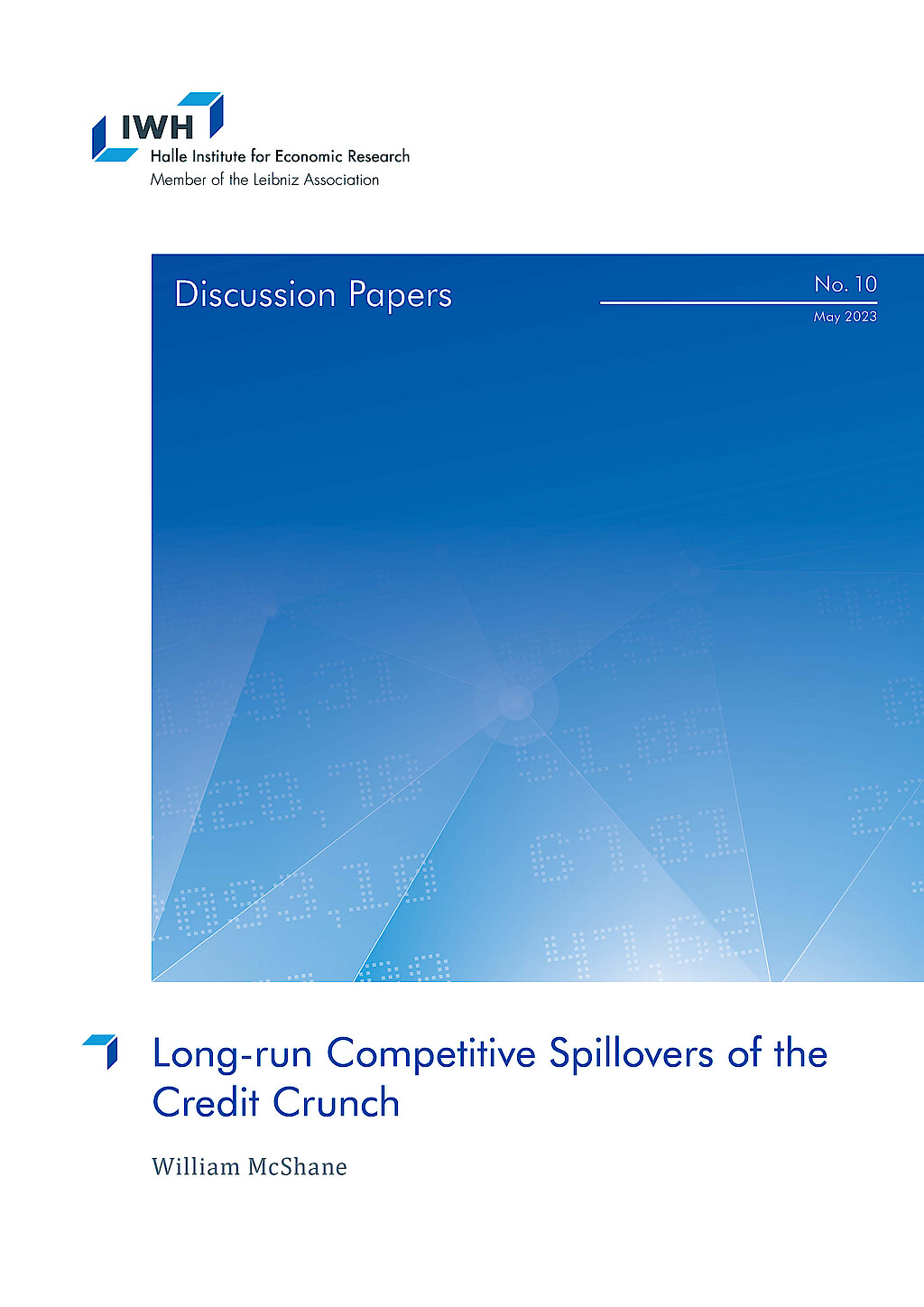
Long-run Competitive Spillovers of the Credit Crunch
in: IWH Discussion Papers, Nr. 10, 2023
Abstract
<p>Competition in the U.S. appears to have declined. One contributing factor may have been heterogeneity in the availability of credit during the financial crisis. I examine the impact of product market peer credit constraints on long-run competitive outcomes and behavior among non-financial firms. I use measures of lender exposure to the financial crisis to create a plausibly exogenous instrument for product market credit availability. I find that credit constraints of product market peers positively predict growth in sales, market share, profitability, and markups. This is consistent with the notion that firms gained at the expense of their credit constrained peers. The relationship is robust to accounting for other sources of inter-firm spillovers, namely credit access of technology network and supply chain peers. Further, I find evidence of strategic investment, i.e. the idea that firms increase investment in response to peer credit constraints to commit to deter entry mobility. This behavior may explain why temporary heterogeneity in the availability of credit appears to have resulted in a persistent redistribution of output across firms.</p>
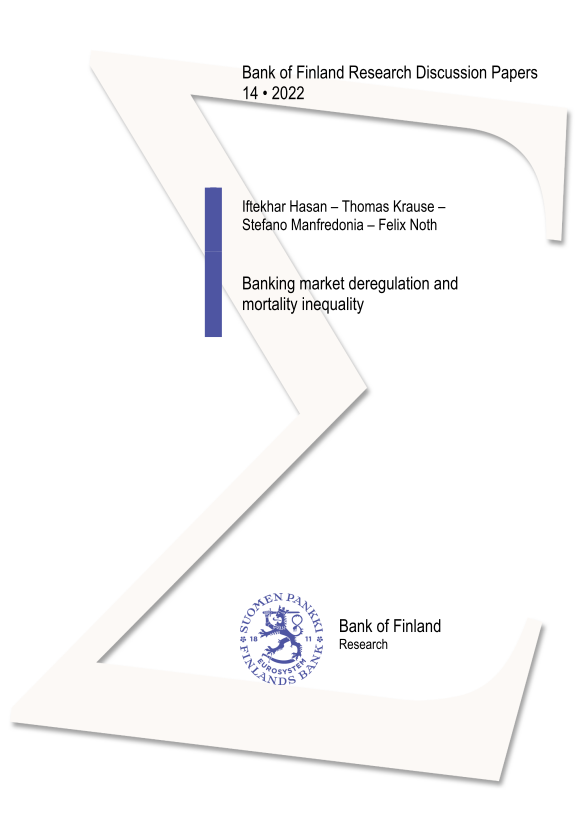
Banking Market Deregulation and Mortality Inequality
in: Bank of Finland Research Discussion Papers, Nr. 14, 2022
Abstract
This paper shows that local banking market conditions affect mortality rates in the United States. Exploiting the staggered relaxation of branching restrictions in the 1990s across states, we find that banking deregulation decreases local mortality rates. This effect is driven by a decrease in the mortality rate of black residents, implying a decrease in the black-white mortality gap. We further analyze the role of mortgage markets as a transmitter between banking deregulation and mortality and show that households' easier access to finance explains mortality dynamics. We do not find any evidence that our results can be explained by improved labor outcomes.
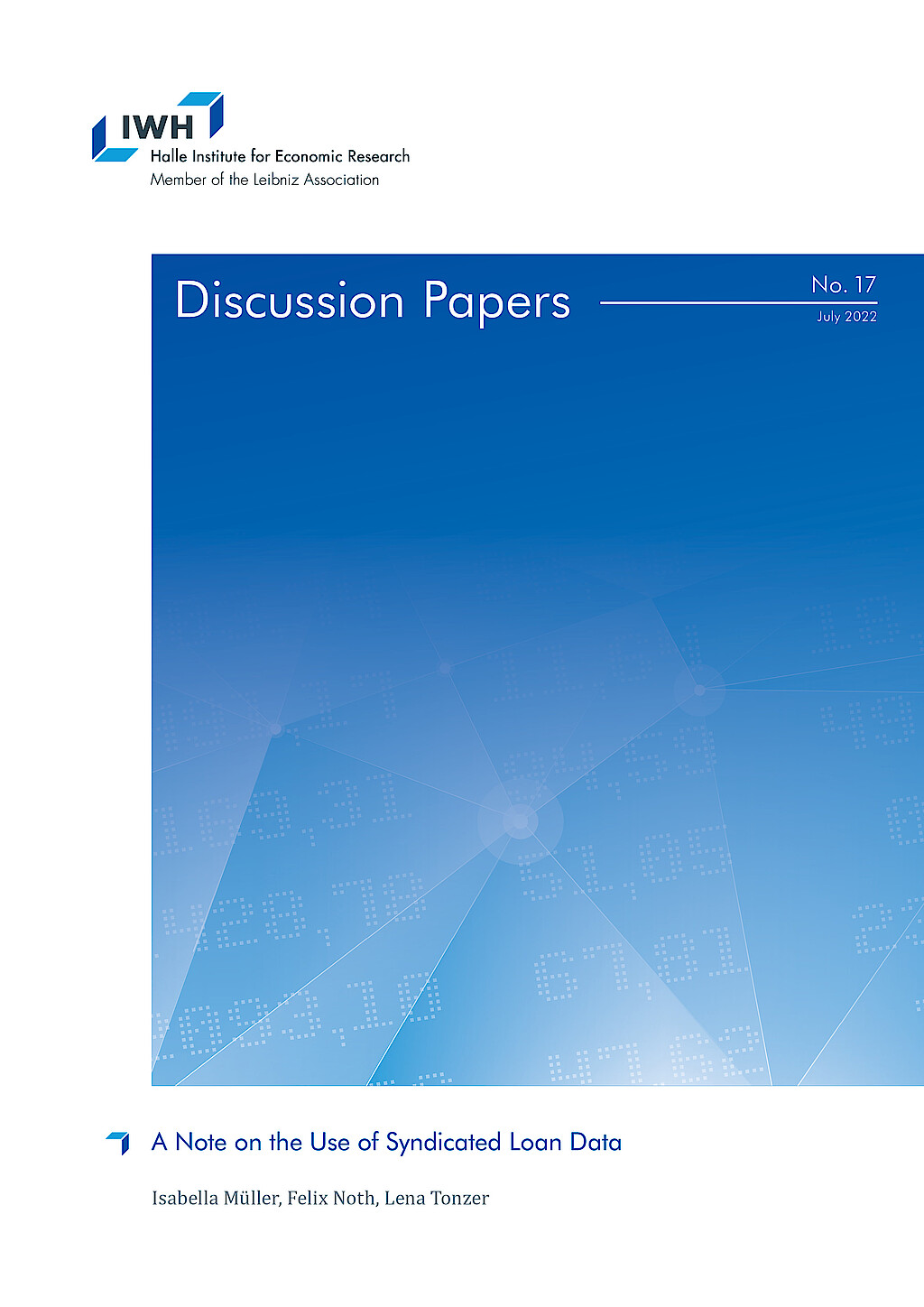
A Note on the Use of Syndicated Loan Data
in: IWH Discussion Papers, Nr. 17, 2022
Abstract
<p>Syndicated loan data provided by DealScan is an essential input in banking research. This data is rich enough to answer urging questions on bank lending, e.g., in the presence of financial shocks or climate change. However, many data options raise the question of how to choose the estimation sample. We employ a standard regression framework analyzing bank lending during the financial crisis of 2007/08 to study how conventional but varying usages of DealScan affect the estimates. The key finding is that the direction of coefficients remains relatively robust. However, statistical significance depends on the data and sampling choice and we provide guidelines for applied research.</p>



















